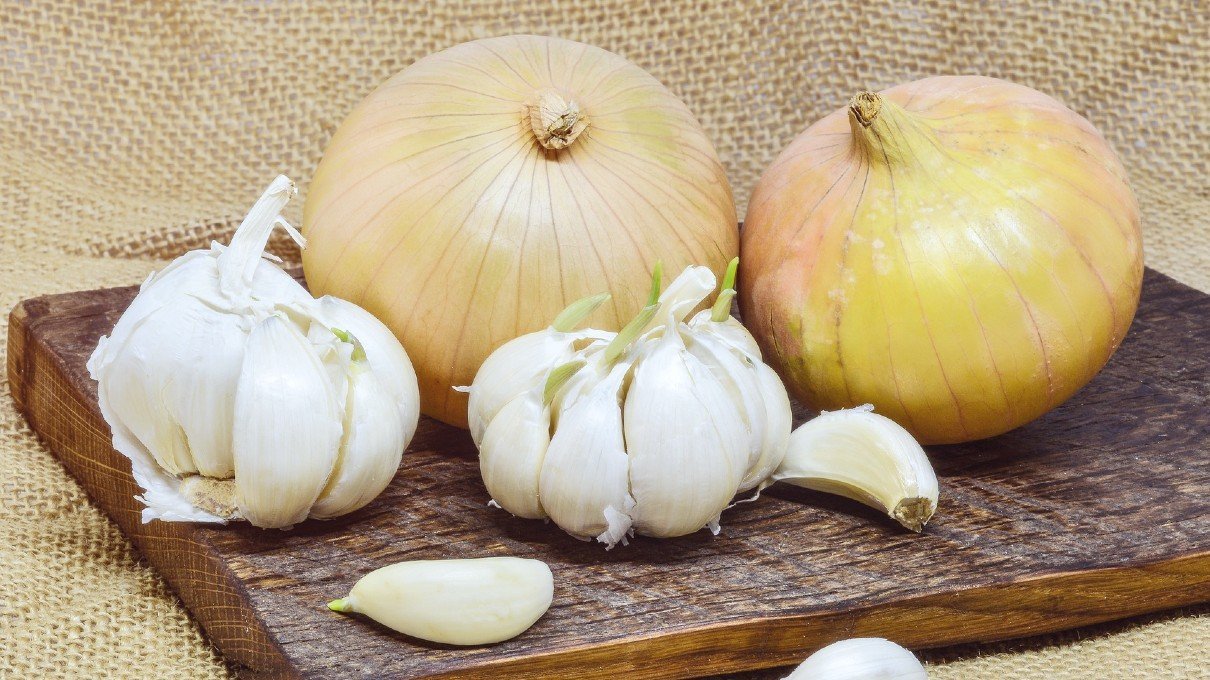Can You Compost Garlic and Onions?

Onions and garlic are some of the most popular cooking ingredients out there. They are great for stews, stuffings, and a whole lot of other recipes. But can they be added to our compost?
We’re here to explore just that.
Can you compost garlic and onions?
Yes, you can compost garlic and onions. But there are ways you should handle the matter.
For one, you should not throw away an intact bulb into your compost – it can easily sprout. Instead, onions and garlic should be chopped into small pieces first – the smaller the better since large pieces will take a longer time to decompose.
As for their skins and scraps, there isn’t much to worry about – just toss them into your heap and call it a day.
Can you compost moldy garlic and onions?
Yes, you can compost moldy onions and garlic. Mold helps with decomposition and is commonly found in compost heaps.
How can you control the odors that onions and garlic produce?
When adding them to your compost pile, bury your onion and garlic pieces at least 10 inches deep. This helps with the strong odor and ensures you only experience it when you turn your compost pile.
Alternatively, you could add some crushed oysters, cardboard, or shredded paper to fight the odor.
To keep any attracted pests and animals away, you could even have a solid barrier in place.
When should you not add onions and garlic to your compost?
There are several cases when you shouldn’t add onions and garlic to your compost heap. These are:
When you’re vermicomposting
This is because worms don’t like foods that produce strong odors and are less likely to break them down.
Also, since onions and garlic are acidic, they can irritate worms, especially since they breathe through their skin. This means foods like onions, garlic, broccoli, and potatoes will just sit in your compost and produce more and more odor, further repelling your worms.
When dealing with diseased onions and garlic
Any plant that has been riddled with diseases should not be added to your compost pile. The pathogens they carry can spread throughout your compost and cause problems.
And while some people hope that their piles can conjure up enough heat to kill such pathogens, most don’t reach such temperatures.
When dealing with oily or fried onions and garlic
As long as you have added oil to your food, it is not suitable for your compost pile. Not only does the fat prevent composting but its smell can also attract pests and rodents.
Consider composting in your kitchen
If you’re still apprehensive about garlic and onions to your compost heap, consider adopting an indoor system. Something like a can help you compost all your food waste, including your pesky garlic and onions, from the comfort of your kitchen.
Such a system uses microbes to ferment your waste in an odorless and hygienic way. So if you particularly hate the smell of rotting onions, this is a great option.
